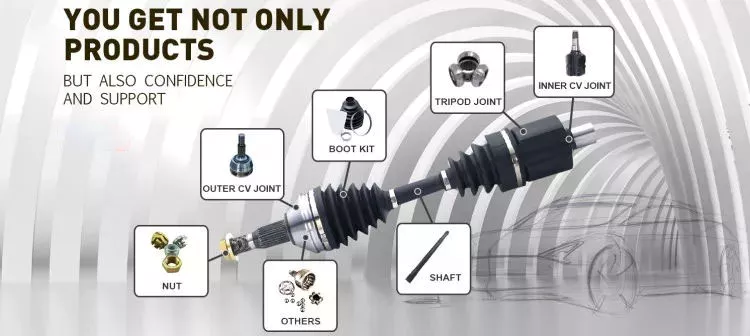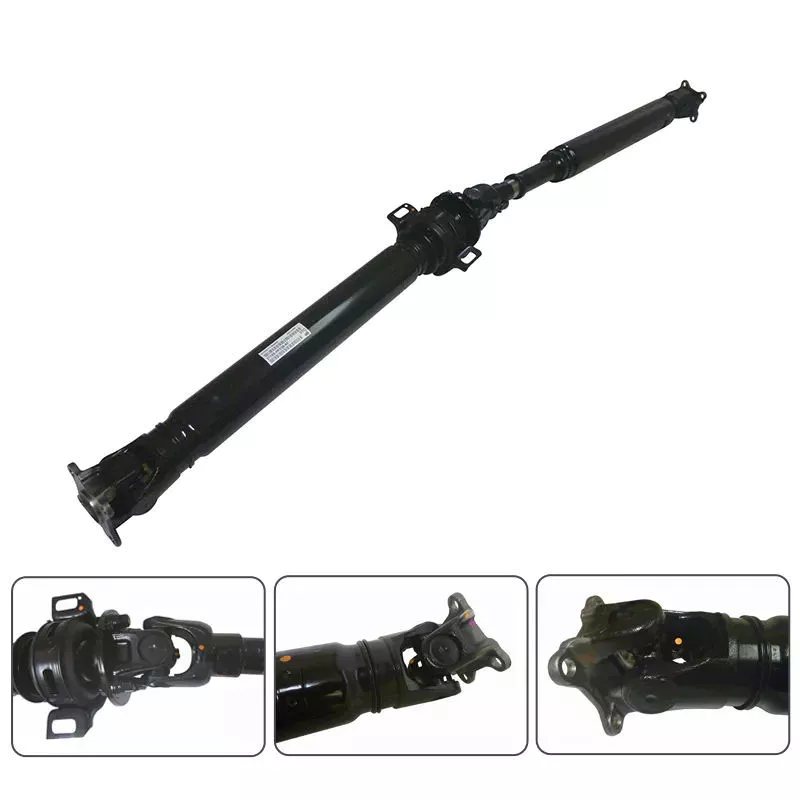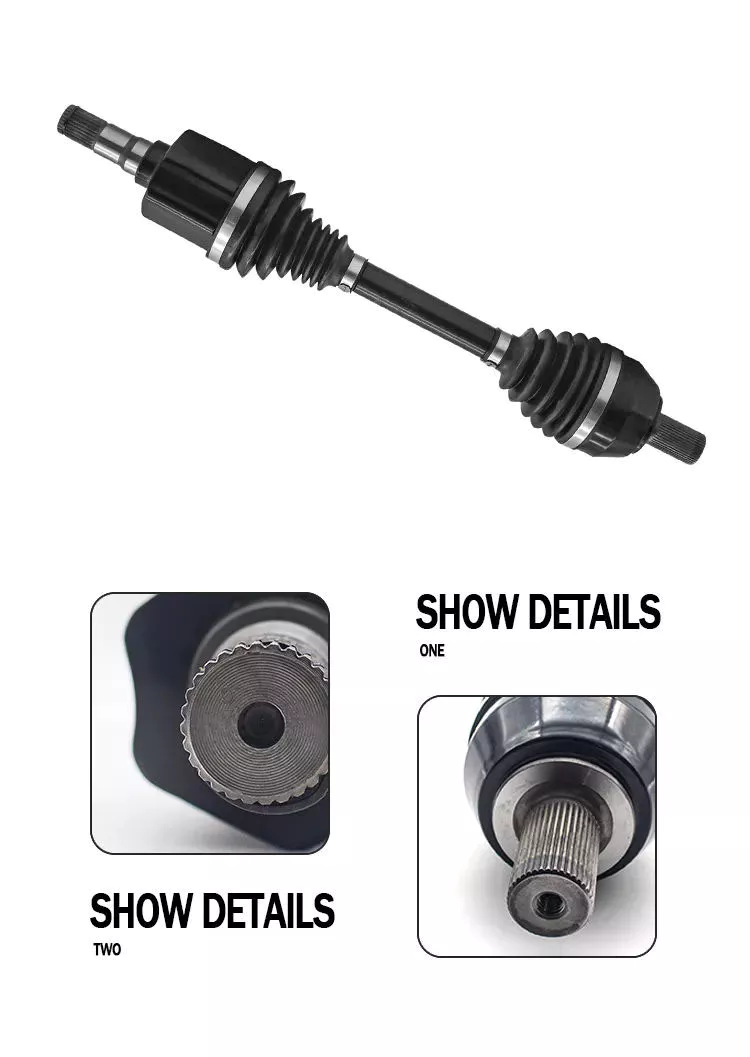OE NO.: 1H0498203A
Warranty: 12 Months
Car Model: Universal
Product Name: Drive Shaft Boot
Material: Rubber
Quality: High-Quality
Brand: BOP
Size: Standard Size
Car Make: Toyota
DELIVERY TIME: 7-15 Days
Shipping: DHL UPS TNT Fedex
Service: Professional Service
Packaging Details: Plastic bags,box
Products Description Company Profile Recommend Products Packing & Delivery FAQ 1. How about your delivery time?A: Generally, it will take 15 to 30 days after receiving your advance payment. The specific delivery time depends on the items and the quantity of your order.2. how can we guarantee quality?Always a pre-production sample before mass production;Always final Inspection before shipment;3.what can you buy from us?Manufacturing sales: motor vehicle parts, auto parts, motorcycle parts, rubber products, plastic products, polyurethane products, molds, construction machinery parts railway parts, rubber machinery.4. why should you buy from us not from other suppliers?We are an excellent motorcycle and auto parts production and trading company, with advanced production technology, low price, better product quality and perfect after-sales system, you can customize the exclusive products5. what services can we provide?Accepted Delivery Terms: FOB;Accepted Payment Currency:USD;Accepted Payment Type: T/T,Escrow;Language Spoken:English,Chinese Packing & Delivery Company Profile HangZhou Shimao Locomotive Components Co., Ltd. was established in 2018, located in HangZhou City, ZheJiang Province. After several years of development, the company has become a professional export of high quality motorcycle and auto parts production and trading company, the company has 50 employees, the main products have more than 20 kinds, has its own professional production line. The company has advanced production technology, low product price, better product quality and perfect after-sales system, reasonable price and first-class service to win the trust and praise of customers, extend by Southeast Asia, Asia, South America and other more than 30 countries and regions welcome. We can customize a production line for your order to meet the customer’s requirements for product appearance and quality. Our rich products and good service will certainly bring you more profits and market share. FAQ 1. who are we?We are based in ZheJiang , China, start from 2018,sell to Domestic Market(23.00%),South America(15.00%),Oceania(12.00%),Southeast Asia(10.00%),Africa(10.00%),Mid East(10.00%),Eastern Asia(10.00%),South Asia(10.00%). There are total about 11-50 people in our office.2. how can we guarantee quality?Always a pre-production sample before mass production;Always final Inspection before shipment;3.what can you buy from us?Motorcycle buffer block,Oil seal,The plum blossom pad,o-rings,Valve seal4. why should you buy from us not from other suppliers?We are an excellent motorcycle and auto parts production and trading company, with advanced production technology, low price, better product quality and perfect after-sales system, you can customize the exclusive products5. what services can we provide?Accepted Delivery Terms: FOB;Accepted Payment Currency:USD;Accepted Payment Type: T/T,Escrow;Language Spoken:English,Chinese
How to Identify and Fix a CV Joint Problem
Whether it’s a cv joint or a constant velocity joint, these two types of joints are used to transmit power through the drive shaft. They are commonly used on front-wheel drive cars. Compared to the constant-velocity joint, which transmits power at a constant rotational speed, the cv joint transmits power at a variable angle. These joints are also known for not increasing friction.
Vibrations

Getting your CV joint checked regularly can help you to avoid accidents. It also allows you to know if your CV joint is damaged. A damaged CV joint will cause vibrations, which can affect your safety. If you notice vibrations while driving, take your car to a mechanic as soon as possible.
A CV joint is a component that connects the front wheels to the axle. It is packed with grease, and it transfers torque from the transmission to the wheels. This allows your wheels to respond smoothly to the demands of the driver. CV joints can last from a few thousand to a few hundred thousand miles before they begin to fail.
If you notice a clunking noise while you are accelerating, decelerating or turning, there is a good chance that your CV joint is malfunctioning. These sounds can be caused by a variety of problems.
A CV joint is a vital component in your drivetrain. If it is damaged, it can cause serious damage to your vehicle. A damaged CV joint can leave you stranded, or worse. It can cause your vehicle to bounce, making it hard to control.
Another symptom of a CV joint is a clicking sound that comes when you turn your wheel. This is most commonly heard when you are turning in a circle at lower speeds. If the noise becomes more noticeable when you turn the steering wheel, the problem may be with your outer CV joint.
If you hear a clicking sound while turning, you should take your vehicle to a mechanic as soon as possible. It could be caused by an inner CV joint popping, or a damaged boot.
The best way to test your CV joint is to drive slowly in a circle in an empty parking lot. If you hear a clicking noise, you may need to replace your CV joint. It can cost from $300 to $800 to replace a CV joint. You can check your car’s axles at CZPT to schedule an appointment to have it checked.
Strange noises
Occasionally, a strange noise can occur at your CV joint. It may be a popping or clicking sound that can be annoying when driving straight. It can also be an indication that your CV joint is worn out.
CV joints are critical components that connect the wheels and transmission to each other. A damaged joint can lead to an increased risk of an accident, causing more damage to other parts of the vehicle.
When the joint is worn out, the metal components inside the joint can grind against each other, causing a loud noise. If you hear this noise, you need to have it repaired immediately. If you do not know how to repair the joint, you should take your car to a mechanic.
One of the most common causes of CV joint noise is a damaged boot. This boot protects the joint from debris, but it can become damaged. Loose clamps allow dirt and debris into the joint, causing the joint to wear out. If the joint is worn out, you may have to replace it.
The most common CV joint noise is a clicking sound that occurs when turning the car. It may not be loud at low speeds, but becomes louder as you speed up. If you hear a clicking sound when turning the wheel, you should have the joint repaired.
Another sign that the joint is worn is a clunk when you put the transaxle into drive. This type of noise is not always louder when turning, but it indicates that the joint is nearing failure.
A clicking or popping noise when turning your car may be an indication that the outer CV joint is worn. However, the noise is not always louder when turning, so you should have your vehicle checked by a mechanic.
If you notice any other strange noises at your CV joint, it is a good idea to have them checked by a mechanic. If the noise is severe, you may need to replace the joint. Having your vehicle inspected is the best way to avoid further damage to the joint.
Grease leakage

Often, the first indication that a CV joint is starting to fail is a grease leak. The grease will leak out of the joint and onto the inside of the wheel, causing damage to the attached joint. In many cases, this leak is caused by a damaged CV boot.
The CV joint consists of a collection of bearings and cages, which are covered by a flexible rubber boot. The boot is designed to last at least 100,000 miles. It helps to keep dirt and water out, and it also keeps the axle clean. A worn out CV boot can cause a leaking CV joint, which will result in a more serious problem.
If you suspect a CV joint is leaking grease, it’s important to have the joint replaced as soon as possible. If the joint is damaged, you may also need to have the axle replaced. This is because the damage to the joint will allow dirt and water to get into the joint. This can cause a variety of problems, from corrosion to failure of the joint.
You may be able to repair a damaged CV boot by buying a kit. However, this is a messy and expensive process. The repair may not be worth it if the joint is still in good condition.
If you suspect the joint is damaged, you may want to drive the vehicle in a circle to see if you can hear any clicking or popping noises. If the noises continue, it may be time for a replacement.
Whether or not you need to replace the CV boot, you should clean out the old grease. If the joint is torn, you may have to replace the entire axle. This can be a cheaper alternative to repairing a CV joint, but it’s a messy job.
Once you’ve cleaned out the old grease, you can replace the boot. You may need special tools to clamp the new CV boot, depending on the application. Some clamps need torque specifications to work correctly. Some clamps are drive-on, while others require a tool.
Lack of control

Having a lack of control in the CV joint of your vehicle can be a dangerous situation. Not only does it make driving unsafe, but it can also increase your chances of having an accident. Thankfully, there are several ways to identify and fix a problem with your CV joint.
If your CV joint is faulty, you may experience vibrations while driving. These vibrations can be especially noticeable if you are turning or accelerating. The intensity of the vibrations may also increase as you accelerate.
If you are experiencing a loss of control in the CV joint of your vehicle, it is important to get it repaired as soon as possible. You may be able to repair the joint yourself or you may need to replace the entire CV axle. If you have the time and the money, replacing the whole CV axle may be the best option. Changing the whole CV axle will reduce the time it takes to repair the problem.
Symptoms of a faulty CV joint include a noise that is heard when turning your steering wheel or accelerating. These vibrations may be caused by a worn out CV joint. If you hear a loud clunking sound or a screeching metallic noise while turning or accelerating, it is likely that your CV joint is failing.
When a CV joint is worn out, it is no longer balanced and does not transmit power properly. It also has a tendency to disintegrate while you are driving. This means you will have a difficult time maintaining a straight line. If you notice a popping sound, bouncy car or a car that suddenly stops, you may have a CV joint problem.
A CV joint can also wear out if you take your car on rough roads or in poor weather conditions. Luckily, you can find a good quality joint to replace your old one. However, you should be careful to follow the manufacturer’s specifications when it comes to repairing it.
CV joints are essential parts of a car’s suspension system. If they are faulty, they can cause severe steering wheel vibration. You may also notice a loss of control.

editor by czh




